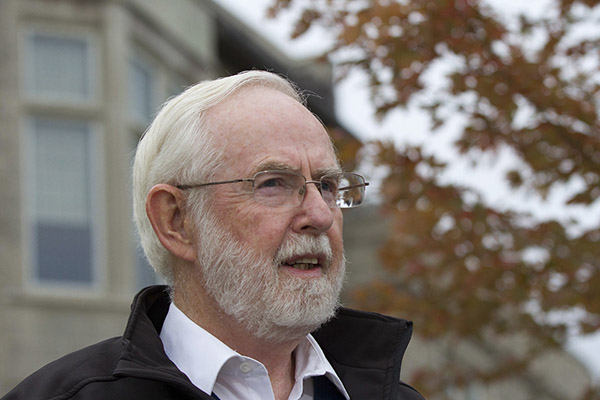 |
|
Arthur B. MacDonald, professor Emeritus at Queen's University in Canada, poses shortly after learning that he was a co-winner of the Nobel Prize for Physics at his home in Kingston, Ontario October 6, 2015. Japan's Takaaki Kajita and Canada's Arthur B. McDonald won the 2015 Nobel Prize for Physics for their discovery that neutrinos, labeled nature's most elusive particles, have mass, the award-giving body said on Tuesday. [Photo/Agencies] |
Asked how he felt when he realized on Tuesday that his work was suddenly going to receive the world's focus, McDonald said, "It's a very daunting experience, needless to say."
McDonald said that scientists would still like to know what the actual mass of the neutrino is. And experiments are looking at whether there are other types of neutrinos beyond the three clearly observed.
The University of Tokyo said in a statement congratulating Kajita that he was one of the students of 2002 Nobel physics winner Masatoshi Koshiba, who also has contributed to Japan's neutrino research.
On Monday the Nobel Prize in medicine went to scientists from Japan, the US and China who discovered drugs that are now used to fight malaria and other tropical diseases.
The prize announcements continue with chemistry on Wednesday, literature on Thursday, the Nobel Peace Prize on Friday and the economics award next Monday.